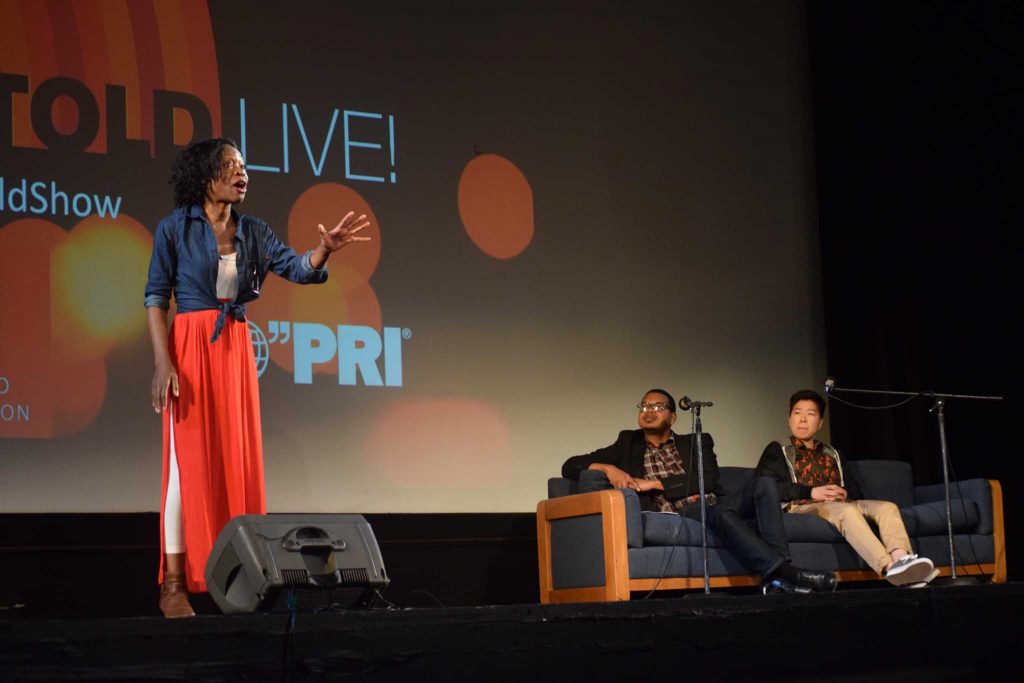Lights shimmered on the stage and the title of KQED’s live show “Truth Be Told” was projected on a giant screen in the background as the host, Joshua Johnson, asked the audience questions about their experiences with race and dating.
“Our desire is to have a smarter, more productive conversation on race,” said Joshua Johnson, the creator and host of “Truth Be Told.” “We don’t want to just talk about race when someone gets shot or when something awful happens.”
The event, held Wednesday, April 27 was a collaboration between the broadcast and electronic communication arts department, Education and Referral Organization for Sexuality, KQED and the San Francisco Foundation. The live show led a discussion about race and dating where recordings of three subjects were played through a speaker for the audience and panelists to hear and respond to.
“Truth Be Told” focuses on handling racially charged situations through the sharing of experiences of past encounters and coming up with solutions so that the public can refer to it for advice, according to the KQED website.
The panelists at the event featured assistant professor of sexuality studies Darius Bost and stand up comic, writer and actor Irene Tu.
During the show, the guests had the opportunity to speak their mind by either responding through a live Twitter feed or by walking up to the microphone in the front row.
The first recording told the story of a woman named Anne, a white woman, from San Jose who was concealing the ethnicity of her current boyfriend, who is Mexican-American, from her 80-year-old grandparents due to fear of disapproval of interracial dating.
According to the recorded audio, Anne is working two jobs in order to put herself through college while living with her grandparents. The subject did not specify what was in jeopardy, but the panelists discussed that it’s likely that exposure could jeopardize her housing.

“Anne should ask her grandfather why he feels that way and slowly break down those walls within,” Sara Highsmith tweeted in response to the first recording.
One of the few audience participants was Jared Zachary, a third-year political science major.
“I loved the performance,” Zachary said. “I loved that I got share my thoughts and I loved the spoken word by Echo Brown. I related to it a lot, so I thought it was very powerful.”
Zachary mentioned that talking in the microphone really give him a chance to ventilate and hear other opinions.
“I thought they were great, everyone shared really personal stories,” Tu said. “At first I thought people were going to ask general questions and not reveal anything about themselves, but I think people were very vulnerable and intimate, and that was great.”
Johnson said a number of other radio stations are going to air “Truth Be Told” across the country, such as Wisconsin Public Radio, and said he feels like there are other productive solutions to talking about race and dating.
“I think part of why race is so hard to talk about is because they (general public) refuse to unpack it,” Johnson said. “It’s so much easier to say what you believe or what your opinion and then to tell your own story. I’ve learned from doing this that telling your own story and allowing yourself to really unpack works wonders. It’s truly a powerful technique.”








